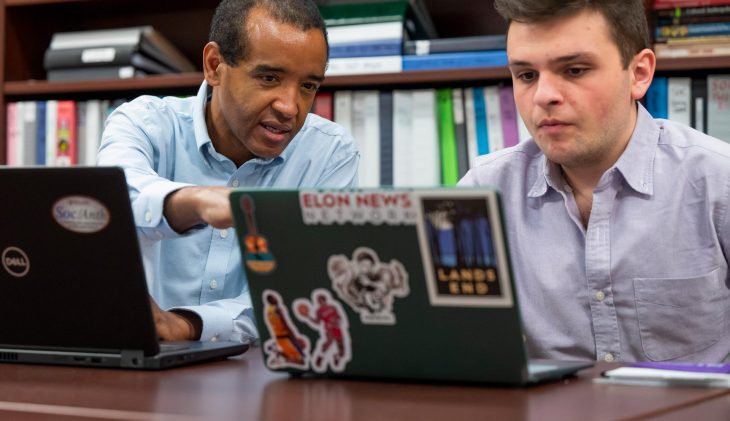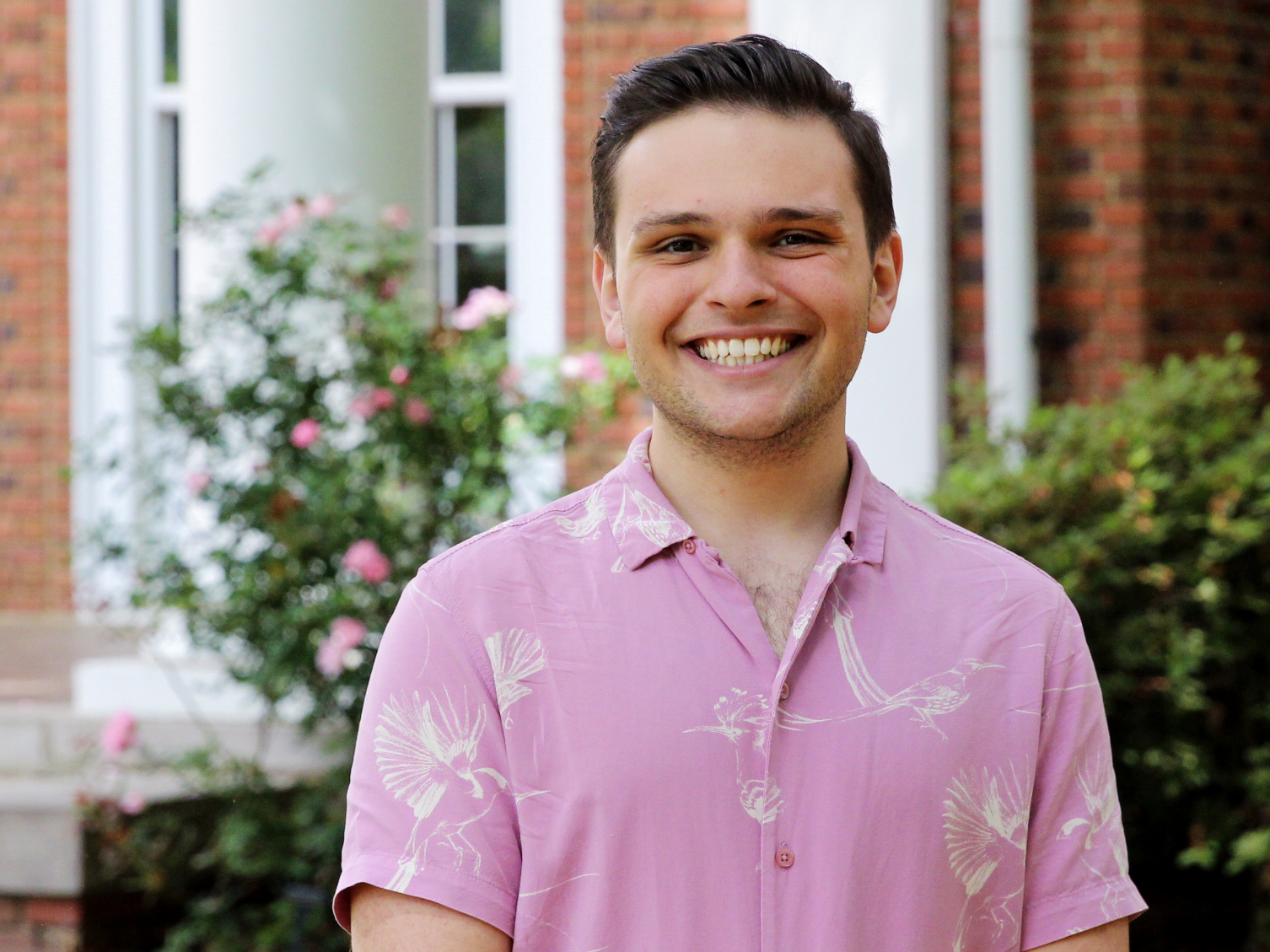Part ethnographic research, part marketing study, Farah worked with six microenterprises founded by clients of the Triad Refugee Business Center to build their online presence and gain customers.
John Luke Farah’s research began with a faculty connection and a simple question: Would businesses founded by refugees benefit from online marketing assistance?
Over the 2022-23 academic year, he worked with clients through the Triad Refugee Business Center in Greensboro and proved there is both a need and desire for such services. One of the entrepreneurs Farah worked with was able to secure an extra $1,600 over several months through the online scheduling and payment system he helped them establish. Other businesses saw web traffic grow by as much as 80%.
“The people that I worked with came here from struggle and now own a business. They started from there and decided they wanted to use what they know from back home and start a business,” Farah said. “That really motivated me and made me feel like I could do a lot with what I’ve been given.”

A double major in anthropology and journalism, Farah discovered the premise for his research in Associate Professor of Anthropology Mussa Idris’ ANT 2150 Qualitative Research Methods course his sophomore year. Farah, whose father immigrated to America from Egypt, was interested in Idris’ scholarship on microenterprises founded by African refugees and the ethnographic research the professor engages in. Microenterprises are businesses that employ five or fewer people and require less than $35,000 in startup capital.
He approached Idris about collaborating on a mentored research project involving families and businesses served by the N.C. African Services Coalition’s Triad Refugee Business Center. The center assists refugees in establishing microenterprises and credit histories through education, planning and micro-loans. One of the center’s goals is to help clients and families become self-sufficient.
Idris conducts his ethnographic research and involves students in strategic ways to benefit refugees and their communities and was excited about John Luke’s approach.
“I just shared my initial work and connected him with the business center. It was his own, original idea,” Idris said. “His abilities to adapt to fieldwork and to work and communicate with clients who are coming from different cultures was noteworthy. He’s also very skilled at the software. He could show them how many people were looking at their business online. That makes it very helpful for them while he is also learning from them how they are adapting and how they are benefitting from the skills that he brings.”
After meeting with the NCASC’s Triad Refugee Business Center loan manager Ahmed Abdullah, who assists clients with start-ups and management, they began gauging client interest. By the end of fall 2022, Farah was working with a grocer, restaurateurs, a driving service and a traditional African hair braiding salon.
Farah consulted each of them after reading their business plans and reviewing their online presences. For some, he helped build out their Google business profiles. Another client needed business cards. Farah provided photos and designed a store logo and sign for the grocer. When the owner of the hair-braiding salon explained her difficulty scheduling clients and the cost of no-shows and last-minute cancellations — the braiding technique can take up to six hours per customer — he expanded her Square payment system to include an online scheduling platform with cancellation fees. Within six months, she’d brought in an extra $1,628 in profits directly related to the online scheduling.
“That’s the data I’m most proud of because you can see that as soon as we established it, appointments ramped up, and each appointment that you see is $25 in booking fees that she made,” Farah said. “These were all new clientele.”
Part of the research was assessing which areas of online marketing clients were familiar with and using, and which they wanted training in. That generally varied case by case, but he found that all were using Facebook to promote their businesses. Most needed assistance with photography, graphic design and determining what types of print products would complement their business models. Farah wove in ethnographic research about how their backgrounds, cultural and personal experiences influenced their business models. Idris accompanied Farah in those interviews, often asking follow-up questions for new information or greater detail.
“Dr. Idris is a mentor to me. This felt like a partnership,” Farah said. “He is a model of someone that I would like to be in my life. He cares a lot about the work that we did and he was always looking for new opportunities for me and offering ideas.”
The project was encouraging to the Triad Refugee Business Center, and there is discussion about including a workshop for clients to develop online skills and potentially mentor each other in their use, Idris said.
The project and connection to Idris changed Farah’s career trajectory. After he graduates in 2024, he plans to pursue a law degree and specialize in immigration law. Being exposed to the NCASC’s structure and learning about various challenges refugees face when settling in a new country, Farah saw the need he could serve.
“This research catalyzed how much I want to help as much as I can. I feel like I can really push myself to my potential by going to law school and learning how I can assist people who want to come here to the country that I’ve loved from the get-go and establish a business here, like my dad.”
Idris views Farah as a model for other students, whom he hopes will find ways to put course-based skills and knowledge to use in the growing refugee crisis around the globe.
“The fact that he’s interested in becoming an immigration lawyer tells me that he found this work meaningful and can see himself doing meaningful work in the future,” Idris said. “He sees refugees as people with a lot of potential to contribute to their new culture and new environment who just need to be integrated into the business system.”



